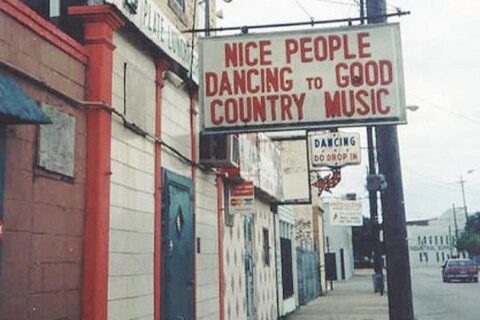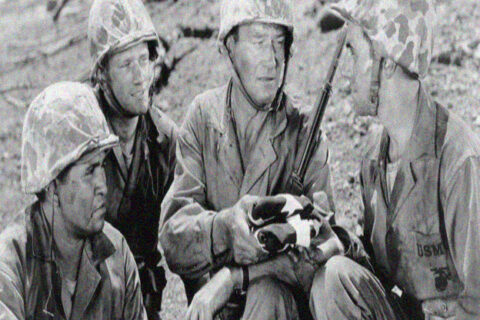The dumbing down of Western culture in general has been a long, thorough, and multifaceted series of appeals to convenience and the lowest common denominator. Nowhere is this more apparent than in our common vocabulary. Slang has long been a part of our vocabulary, and there is nothing inherently wrong with that. These terms can be time savers, distilling what can be a more complex idea into a single phrase or word that can be used humorously to get a point across without digressing or derailing a conversation. They often begin in subcultures of one kind or another, eventually gaining common usage. One example is the geeks of yore who first used “dot” instead of “period” when talking about file names or web addresses. Some slang terms come from popular science, like when a person “has a meltdown.” This term originated when nuclear power plants became more common, and the term was borrowed to describe someone losing their temper.
Like with so many other things these days, most of our common slang of the last few decades comes from the absolute lowest strata of subcultures. It comes from lowest class of black culture, as does what we are told to consider music, fashion, and standards of public behavior. More recently, we have seen the equally low, and even more despicable, transvestite community’s slang terms making their way into popular speech. The why’s and how’s are probably obvious to the reasonably intelligent observer, but how we got here is less important for our purposes than the fact that we are here. We are in a place where the meddling, well-meaning Yankee menace has accidentally caused more damage than anything they are competent enough to pull off on purpose.
Cultures that are aggressively ignorant or openly hostile to observable truths will not create slang terms that convey complex ideas in a clever, concise manner. They will simply reuse existing words in the crudest context possible, redefine them entirely, or make up a new word that means the same thing as the last slang term they made up. This leads to not just a coarsening of language in that crudeness becomes more widely used and acceptable, but people lose the ability to express complicated thoughts and ideas. As previously mentioned, I do not believe the Yankee is smart enough to do have done this on purpose, especially since they suffer from it just as much as other people do. I believe it is their typically short-sighted, effeminate need for the approval of people they are told to worship, overwrought emotions that drove them here, and their totalitarian instincts that made them drag the rest of us along with them.
Like most other leftist paradigms, you are told that it is good to sound the way they tell you to sound. In order to be a trendy and good person, you are required to use this slang and accept the premises on which it is based. Like every single leftist paradigm, it is well past time we rejected it entirely. It is time, to borrow a phrase from a popular carnie barker turned politician, to “Make Vocabulary Great Again.”
This doesn’t mean we should all try to sound like Victorian-era nobility. This also doesn’t mean White people should never use slang, contractions, or speak casually. We reject degenerate culture like most modern movies, Netflix and Disney in their entireties. It is a matter of course that we don’t take our children to “drag queen story time” at the local library or watch the pornography that passes for “edgy” television. We don’t listen to degenerate music. Why would we use degenerate language, especially when the alternative is so powerful?
One need look no further than our own humble site to see plenty of examples of brilliant vocabularies. The works of Padraig Martin, Ethan, Harmonica, and Joe Wasp, to just name a few, are examples of complex ideas that are made accessible through the full force of our language. The poetry of Father Dabney could not stir the soul like it does if he were so limited as to be “trendy.” None of the aforementioned writers has ever needed to resort to saying something that they approve of “slaps,” though I have seen Father Dabney exclaim someone’s outfit was “on fleek.”
These men set a high standard, but not an impossible one. We can and should speak like literate adults. This doesn’t mean completely eschewing contractions or some slang or colloquialisms. What this means is not being afraid to use a “two-dollar word” or saying a phrase that you last heard your grandparents use. Listen to an old speech for a clue as to what used to be considered accessible by the general public. While the goal should never be to sound like you’re trying to talk over someone’s head, you have to know your audience after all, using the language of our elders and our ancestors is yet another way to keep them alive and to help remind others that there is a better way.
We take pride in our people and our heritage. We act like it, and we should sound like it, too.







One of the few phrases uttered by George “Dubya” Bush that resonated with me and that I liked was, “the soft bigotry of low expectations.” I think that is essentially what you are describing in this article. We should lead by example, as you say. Although, I like the word “ain’t” and I ain’t ever going to stop using it no matter what you say. LOL
Good topic, and good article, sir.
Great article and much needed. When we read the letters of Robert E. Lee and some of his contemporaries it will shame all of us into aspiring after better.
I think it was the Catholic firebrand, Ann Barnhardt, who once opined that, “you are the average of the five people with whom you interact most.” Or something like that. Anyway, I reckon there is probably something to that, even inasmuch as it might apply to the five people one interacts with most as pertains to reading their writing and prose.
I burst with laughter!
Excellent work!
I try to write as I speak, when I slow my pace of course, in South Carolina Low Country, which is peek Southern culture.
This is a fantastic topic, and inspires me to check my language for unintentional vulgarity.
When I use vulgarity, it’s always intentional.
I love it! … Sounds like something the great Nathan Bedford Forrest might have said.
Wow! Thank you for that! I’m certainly not the man Gen. Forrest was, but I’ll take your compliment nonetheless.
Exactly!
One of the many delightful cultural gifts that Southerners offer to the world is our language. In both tone, prose and pace, nothing sounds sweeter than a Southern man’s oration, delivering sharp and intentional words with a gentle tone. I LOVE the importance our People put on our language.
My wife is an honorary Southern woman (she’s southern Cali) and we’ve worked very hard in homeschooling our brood to ensure they wield words carefully.
Thank you for this post and reminder!
There is no sound more beautiful than the voice of a cultivated Southern woman—alas disappearing
Quite. You see this in the *writing* of cultivated women of the Old South as well. I always derive a great deal of pleasure from reading them when they pronounce, for example, that they had to wait on a brother to return home so’s he could say the word “damn” for them. Cultivated women of the old south *never* spoke such vulgarities, nor did they write them. …
Thanks for the shout out, homie
A friend who once traveled on a safari returned with a report of the trackers and packers that stunk like hell to the point of keeping one well upwind of them constantly. Along with this, they communicated amongst themselves in a language made up primarily of clicks and clucks, without much if any word formation. The land was harsh and obviously they were well adapted to survive its trying consequences, but to carry this level of voice communication not to mention the olfactory signaling into the reaches of the society of modern man gives a clue as to what lies ahead for generations of Southerners who don’t take a stand against digression. Call it what it is, resist it. Soap is a construct of civilized man, so is written language the cleansing of thought to base future societies on!